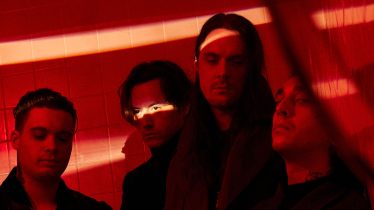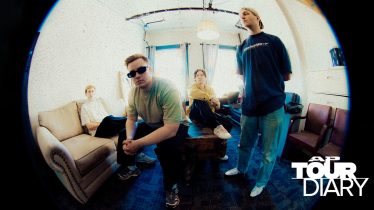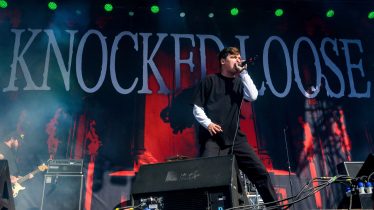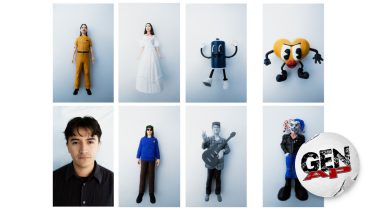Avenged Sevenfold albums ranked: From worst to best
After seven years, Avenged Sevenfold is again ready to commandeer the hard-rock conversation, returning last week with their new electro-tinged single “Nobody” and the reveal that their new album Life is But a Dream would be due June 2.
Over the past 25 years, Avenged has built its resume as one of the most significant American hard-rock bands in history and so much of their catalog holds up as testaments to technical ability, ambition and blazing grandeur.
But before we venture into the band’s newest head-banging era, we’re revisiting their last two decades of madness, from early raw chaos and A7X’s commercial breakthrough (which you can buy in our shop) to the passing of drummer Jimmy “The Rev” Sullivan in 2009 and beyond.
Here are the band’s seven studio LPs, ranked worst to best.
Read more: Every Bring Me The Horizon Album Ranked
7. Sounding the Seventh Trumpet (2001)
While the raw potential is obvious in hindsight, the band’s debut album is by a wide margin their most unimpressive effort. The sound is early ‘00s metalcore-by-numbers — colliding flourishes of West Coast hardcore and thrash — with underdeveloped licks borrowing mightily from Metallica and Disturbed. Of course, the band was very green; M. Shadows was 19 when the recording was laid down and hadn’t yet found his vocal lane. And the fact that A7X’s defining guitarist Synyster Gates hadn’t yet joined the band when this record was tracked obviously looms large. Still, there are early brushes of the fury to come, in the grooves of “We Come Out at Night” and “An Epic of Time Wasted.”
6. Hail to the King (2013)
Hail to the King plays like a tribute album, nodding more than ever to the band’s raging forefathers, though with an edge as dull as anything the band has ever released. The verse melody of “This Means War” is eerily similar to Metallica’s “Sad But True,” and “Doin’ Time” could’ve been a GNR Appetite for Destruction B-side. Though the album — which was generally well-received upon release and a commercial success, debuting at No. 1 on Billboard — does land a pair of modern metal standards in the towering title track and incendiary “Shepherd of Fire.” Gates’ guitar tone on “Coming Home” is worthy of cult worship. But the rest falls into middling Megadeth and Iron Maiden noodle-ry, which makes it generally unremarkable when stacked against the rest of their catalog.
5. The Stage (2016)
While the band had toyed with elements of progressive metal since at least its self-titled LP a decade earlier, The Stage was the first true plunge into the deep end of off-the-wall experimentation and concept building. The story is bound, now rather prophetically, to the proliferation of artificial intelligence and the dissolution of humanity on Earth. The project builds to a cosmic cataclysm on “Exist,” the 15-minute, planet-smashing finale-opus reminiscent of Between the Buried and Me’s “White Walls,” though BTBAM never got celebrity astro-physicist Neil DeGrasse Tyson to write and read a spoken-word passage about the immensity of the universe. The album adds some fun brass horns on “Sunny Disposition,” though otherwise rips with much of the familiar serration of past works, re-establishing the band’s ferocity after Hail to the King.
4. Nightmare (2010)
While Nightmare will always be defined by its circumstances(marking the band’s first album after The Rev’s death in ‘09) it still stands up as a stark and searing metal record, as well as a commemoration to a lost friend. Dream Theater drummer Mike Portnoy’s contributions are exemplary — a better temporary replacement couldn’t have been conjured — and the title track and “Welcome to the Family” assured fans the band would not waver in the face of tragedy. The return to metalcore screams on “God Hates Us” was a welcome skull smasher. The mammoth, nearly 11-minute finale in “Save Me” is a beast of a punctuation, but the emotional balladry of “Tonight the World Dies” and “So Far Away” challenge listeners’ attention spans before the big finish, despite the emotion of the lyrics.
3. City of Evil (2005)
For most casual rock fans, City of Evil is the Avenged Sevenfold album. It was the commercial, major-label breakthrough, the record that yielded the band’s most inescapable single in “Bat Country,” and spurred millions of virtual shredders after “Beast and the Harlot” appeared on Guitar Hero II. For the band itself, the album was a significant thematic shift toward more accessible hard-rock sounds — their first without screams — and a step forward for Shadows in becoming one of the dominant metal bandleaders of his era. Everything here is bigger, cleaner, and designed for maximum appeal. It seems impossible now that the lead single from this album was actually “Burn It Down,” which touted a power metal sort of edge. Fans also still clamor for “Seize the Day,” the group’s first ballad, which gives Use Your Illusion-era Axl Rose vibes. Though the most complete track on the platinum-selling album is “Blinded in Chains,” a clinic in precision and propulsion.
2. Waking the Fallen (2003)
The band’s first album to feature its classic-era lineup (with Gates and bassist Johnny Christ on the recording) is a blistering blueprint of what was to come, establishing a sound that was mercifully more refined yet no less caustic. “Unholy Confessions” (and its instantly recognizable riff) was the track that would tether the band to many lifelong fans, but there’s so much else to love on the band’s first true break into the larger metal conversation. “Chapter Four” and “Eternal Rest” are among the band’s most brutally essential tracks and Gates’ solo on “And All Things Will End” announces his presence as the A7X’s second voice and portends all the virtuosic playing to come. Truthfully, Avenged fans will argue forever over whether the grit of Waking has aged better than the more burnished sounds of City of Evil — but we’ll take the dirtier stuff any day.
1. Avenged Sevenfold (2007)
One of the most magnificent mass-appeal metal albums of the 21st Century, the band’s self-titled stands alone as the greatest distillation of all they do so well. From the first foreboding organ blares of “Critical Acclaim” — maybe the band’s best song ever; Rev’s backing vocals still give chills — it’s a no-skip effort teeming with razored vocals, unreal guitars and an expansion of their sonic curiosities. The strings on “Afterlife,” the Danny Elfman-inspired orchestral arrangement on “A Little Piece of Heaven,” the country-tinged twangs of “Gunslinger” and “Dear God” — it all lands with the confidence of a band at the height of its power. Even the inexplicable auto-tune of power metal punisher “Lost” is somehow welcome. Not to mention “Almost Easy,” the soaring hard-rock single that endures as the band’s greatest-ever radio track (sorry “Bat Country,” it’s true). Not a hair nor head-bang is out of place on this masterpiece, which established Avenged Sevenfold as the larger-than-life, festival-headlining titans then remain today. Bring on the next chapter!










